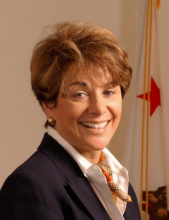
In order to allow local governments to help communities get the connectivity they need to compete, Rep. Anna G. Eshoo (Dem.-CA) introduced the Community Broadband Act of 2016 on September 13. The bill is designed to preserve local authority for municipalities, tribal, and local governments that wish to serve community anchor institutions, businesses, and residents with advanced telecommunications capability.
From Rep. Eshoo’s official statement:
“I’m disappointed that a recent court ruling blocked the FCC’s efforts to allow local communities to decide for themselves how best to ensure that their residents have broadband access. This legislation clears the way for local communities to make their own decisions instead of powerful special interests in state capitals.”
“Rather than restricting local communities in need of broadband, we should be empowering them to make the decisions they determine are in the best interests of their constituents. Too many Americans still lack access to quality, affordable broadband and community broadband projects are an important way to bring this critical service to more citizens.”
Rep. Eshoo introduced “dig once” legislation last fall and has long advocated for federal legislation to support Internet network deployment and increase universal access. This legislation would pair with Senator Cory Booker's 2015 Community Broadband Act.
When Christopher spoke with Sam Gustin for Motherboard about the bill, he said:
[He’s]“excited to see Rep. Eshoo's bill that would restore local authority to communities. Local governments need to be empowered to decide how to improve internet access rather than leaving their businesses and residents at the mercy of a few big monopolies.”
The Coalition for Local Internet Choice also responded positively:
CLIC applauds Congresswoman Eshoo for her efforts to protect local Internet choice and the options of all local communities to deploy critical broadband infrastructure.
Introducing a bill at the federal level, however, is only the first tentative step in restoring local authority. As Christopher told Gustin, the devil is in the details:
“However,” Mitchell added, “the big cable and telephone companies are so influential, with campaign contributions especially, that the path for this bill is quite challenging.” He warned of potential unintended consequences if lobbyists for AT&T, Comcast, and Charter are able to insert language that “could make investment and competition more difficult.”







